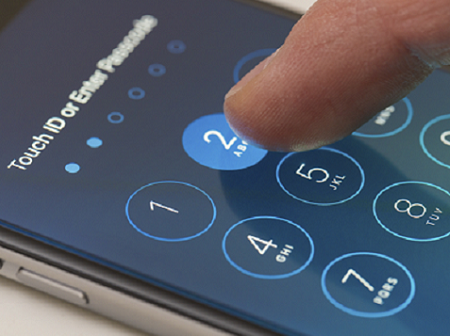Apple May Add Touch ID To OS X
The iconic computer and device maker is reportedly considering an OS X 10.12 feature that would allow users to unlock their Macs via the same Touch ID technology that's in iPhones and iPads.


iPhone Encryption: 5 Ways It's Changed Over Time
iPhone Encryption: 5 Ways It's Changed Over Time (Click image for larger view and slideshow.)
Apple is reportedly working on allowing users to unlock their Macs via Touch ID technology, potentially setting up another device as a target that could draw the attention of law enforcement authorities looking for ways around cracking encryption.
The iconic computer and device maker is may be adding a feature to its OS X 10.12 update that would allow a user's Touch ID-enabled iPhone to unlock a Mac when its nearby, according to a MacRumors report.
The feature will likely work in the way that an unlocked iPhone automatically connects to an Apple Watch by skipping past the watch's passcode, according to MacRumors, which noted that this would be done using a Bluetooth LE framework.
In a roundabout way, the iPhone can currently be used to unlock a Mac. The Knock app uses Bluetooth to allow users to tap their iPhone and have it serve as a password for an Apple Watch. The Apple Watch, in turn, can be used to unlock the user's Mac.
But if Apple develops a feature to allow the Touch ID-enabled iPhone to directly unlock Macs, it will give law enforcement authorities an easier way to force suspects to unlock their Macs, versus breaking through a device's encryption.
Encryption became a high-profile topic in the San Bernardino terrorist case when the FBI tried to unlock the shooter's iPhone, but was initially prevented by its Touch ID.
The courts can force a user to place a finger to unlock a phone via Touch ID, giving law enforcement officials easy access to the contents held by the device, since this action is not protected under the Fifth Amendment. Ironically, the Fifth Amendment does guard against self-incrimination should a person be asked to provide his or her password or pin number to such a device. That's because the action requires the person to make a statement that shares such information.
[Read Google, Apple Aim to Kill Passwords.]
However, Apple recently added restrictions that require you to input your passcode if your iPhone or iPad hasn't been unlocked with a fingerprint in the past eight hours, if the device hasn't been unlocked with its passcode in the previous six days, or if it hasn't been unlocked either way in the past 48 hours, according to a Macworld report.
The report also notes documents show that those change took effect in May, but an Apple spokesperson told the publication the change happened in September, when iOS 9 rolled out. These new restrictions could make it tougher for law enforcement agencies to gain access to iOS devices with a fingerprint.
According to a report in 9to5Mac, Apple is expected to unveil its big OS X update at its Worldwide Developers Conference (WWDC) next month, and may add its Touch ID OS X 10.12 support to the mix.
About the Author(s)
You May Also Like
How to Amplify DevOps with DevSecOps
May 22, 2024Generative AI: Use Cases and Risks in 2024
May 29, 2024Smart Service Management
June 4, 2024







